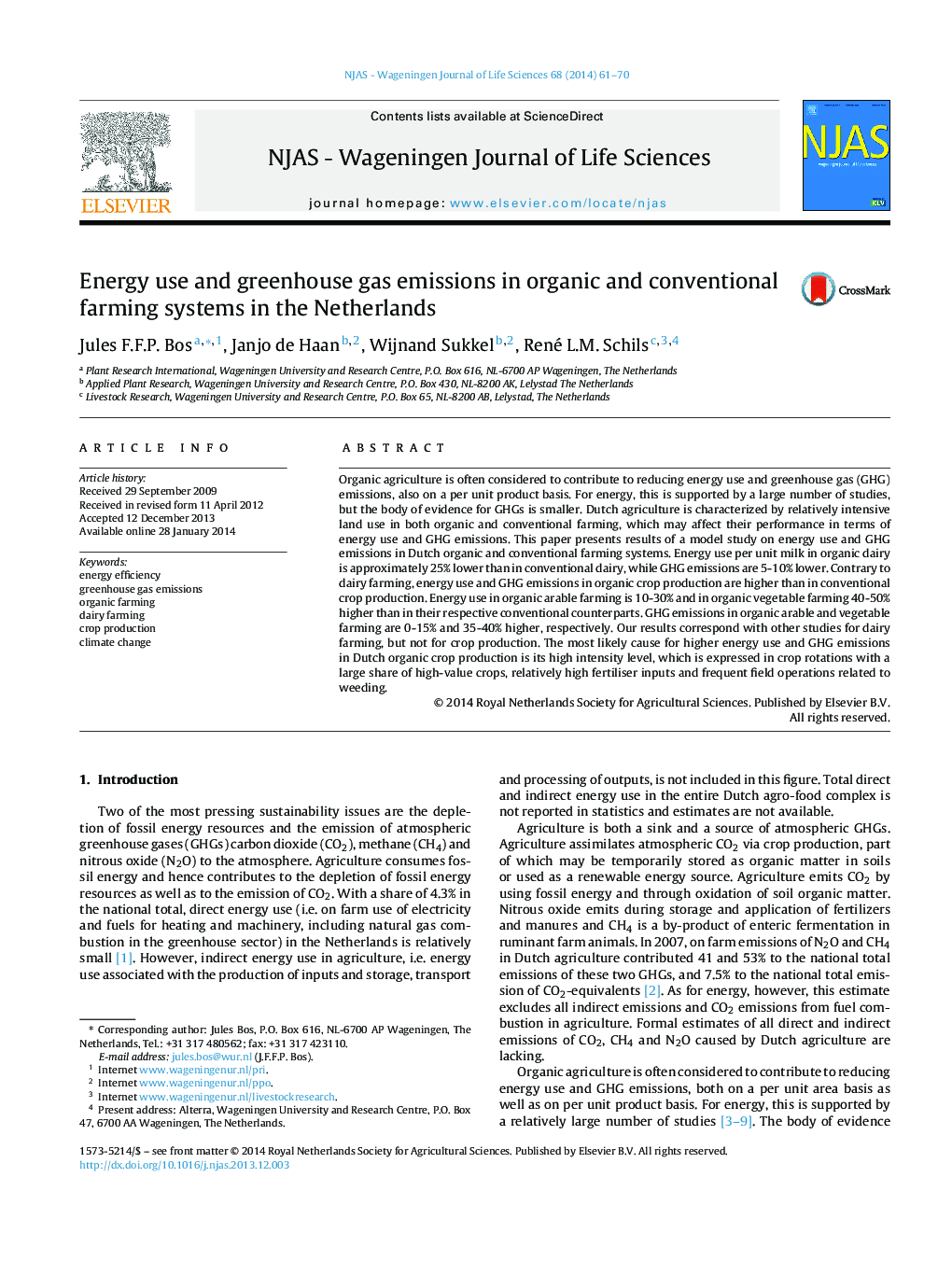| کد مقاله | کد نشریه | سال انتشار | مقاله انگلیسی | نسخه تمام متن |
|---|---|---|---|---|
| 4501292 | 1624066 | 2014 | 10 صفحه PDF | دانلود رایگان |
• We calculated energy use and greenhouse gas emissions in Dutch organic and conventional farming systems.
• Energy use and greenhouse gas emissions per unit milk in organic dairy are approximately 25% and 5-10% lower than in conventional dairy.
• Energy use per unit crop produce in organic arable farming is 10-30% and in organic vegetable farming 40-50% higher than in its conventional counterpart.
• Greenhouse gas emissions per unit crop produce in organic arable and vegetable farming are 0-15% and 35-40% higher.
• To reduce energy use and greenhouse gas emissions related to food production, choices on food package composition are more relevant than the choice between organic or conventional farming.
Organic agriculture is often considered to contribute to reducing energy use and greenhouse gas (GHG) emissions, also on a per unit product basis. For energy, this is supported by a large number of studies, but the body of evidence for GHGs is smaller. Dutch agriculture is characterized by relatively intensive land use in both organic and conventional farming, which may affect their performance in terms of energy use and GHG emissions. This paper presents results of a model study on energy use and GHG emissions in Dutch organic and conventional farming systems. Energy use per unit milk in organic dairy is approximately 25% lower than in conventional dairy, while GHG emissions are 5-10% lower. Contrary to dairy farming, energy use and GHG emissions in organic crop production are higher than in conventional crop production. Energy use in organic arable farming is 10-30% and in organic vegetable farming 40-50% higher than in their respective conventional counterparts. GHG emissions in organic arable and vegetable farming are 0-15% and 35-40% higher, respectively. Our results correspond with other studies for dairy farming, but not for crop production. The most likely cause for higher energy use and GHG emissions in Dutch organic crop production is its high intensity level, which is expressed in crop rotations with a large share of high-value crops, relatively high fertiliser inputs and frequent field operations related to weeding.
Journal: NJAS - Wageningen Journal of Life Sciences - Volume 68, 7 March 2014, Pages 61–70
